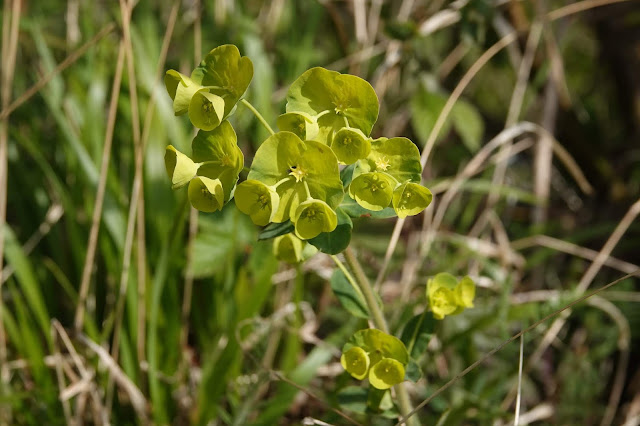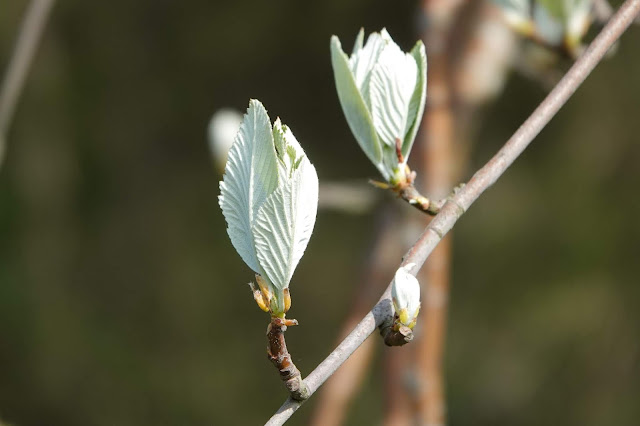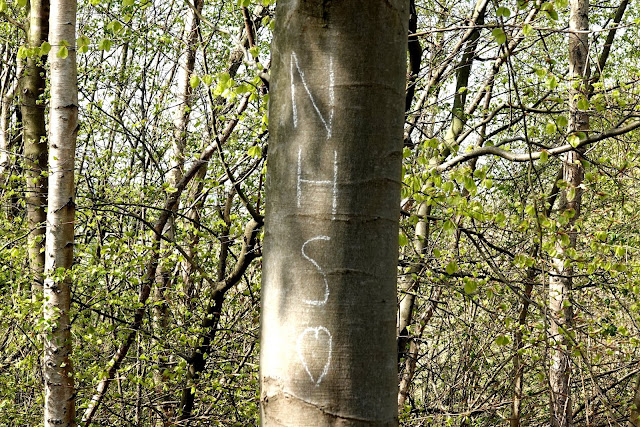After some early morning chores at home I headed straight
out with a vague notion of where I wanted to go. As it turned out it was the most satisfying
walk I have done so far mostly through rolling chalk downland, woods and
farmland that started once I got back up to Ranscombe Farm on the south side of
the M2.
 |
| Whizzing over the Medway |
I headed south along a route I have never taken and through
the vast rolling fields that this innovative flora reserve has created and
maintains for some of our very threatened wild flowers.
 |
| Ground Ivy and Marjoram |
 |
| Dandelions |
 |
| Dandelion |
 |
| An escape route to Cuxton |
 |
| Path heading into the distance - not a soul around |
The fields were covered in the early stars of
the show with carpets of Dandelions, Ground Ivy and Creeping Buttercups and I
will return to see it in its full summer glory. I did find a few little clumps
of pale yellow and white Field Pansy and there were plenty of Speedwells and Groundsel
too.
 |
| Field Pansy |
 |
| Field Pansy |
 |
| Brassica of some sort |
 |
| Groundsel |
A couple of Whitethroats sang from boundary Brambles and
Blackcaps and Chiffchaffs dominated the treeline as usual. Just into these
wooded areas had also been cleared and managed and Yellow Archangel and Bugle were
already in flower amongst the Primroses, Bluebells and Stitchwort along with
what I think is Wood Spurge and big shiny clumps of Spurge Laurel were obvious
against the lesser leaf cover.
 |
| Yellow Archangel |
 |
| Bugle |
 |
| Cow Parsley |
 |
| the leaves |
 |
| budding Old Man's Beard |
 |
| Wood Spurge |
 |
| Common Gromwell |
 |
| Spurge Laurel |
Whitebeams offered up their new silver leaves like praying
hands and Wayfaring Trees were the prominent tree flower on show.
 |
| Whitebeam |
 |
| Whitebeam |
 |
| Magpie in Whitebeam |
 |
| Wayfaring Tree |
 |
| Spindle |
 |
| Jay |
My route took me up The Valley before I veered off to rejoin
the main woodland edge path after first traversing a Beech Hanger with some
fine old trees. Wood Anemone and Violets dotted the ground but once again bird
song seemed un-naturally limited given the time of year and warm still weather.
A solitary Holly was just coming into
flower and clumps of Stinking Iris still had last years seed pods attached.
 |
| Whitebeam and a Beech with canopies aligned with the upslope wind |
 |
| New Beech leaves |
 |
| Jay |
 |
| Wood Anemone |
 |
| Violet |
 |
| Dogwood |
 |
| Holly flowers |
 |
| with Andrena flavipes |
 |
| Stinking Iris |
 |
| Random tree in the wood... showing some NHS love in chalk |
 |
| Ash |
 |
| Gean - Wild Cherry |
 |
| Wild Service Tree |
I now had meadows and then wheatfields dropping away towards
the railway line to my south with expansive views of a swathe of almost
unpopulated countryside. Skylarks sang and Buzzards mewed.
The managed path edges held numerous Beeflies busy hovering
in front of Speedwells and Ground Ivy and Peacocks descended to Dandelions and
the last of the late Blackthorn flower.
 |
| Dark-edged Beefly on Speedwell |
 |
| Speedwell |
 |
| Blackthorn |
 |
| Peacock |
One particular sun splashed Ash trunk had several Sol
worshipping flies adhered to it with several Musca
autumnalis, Mesembrina meridiana, Gymnocheta
viridis and a cracker of a hoverfly Ferdinandea
cuprea. This was a species that I
first saw last autumn on the other side of the woods nearer home so it was good
to find a spring one here too.
 |
| Ferdinandea
cuprea |
 |
| Mesembrina meridiana |
 |
| Mesembrina meridiana |
 |
| Gymnocheta
viridis |
 |
| Gymnocheta
viridis |
 |
| Musca
autumnalis |
 |
| Pine Ladybird |
The undulating chalk path popped me out near the old dairy
in the Cobham Estate where I appeared from the woods last Tuesday so I took a
different route back and instead of heading across the golf course I went north
on the path up towards the old School. The Daffodil display was superb and
Jackdaws and Stock Doves called from the solitary ‘park’ trees and I discovered
a Rookery of 32 nests by the old brick kiln ponds. This is the only rookery I have seen over the
last week of walks and I am puzzled why they seem such a scarce bird inland
around here.
 |
| Onto the Cobham Estate |
The road past Ashenbank was visible to my west and I have
often thought as I have driven along there that the big gnarled Oaks and
Chestnuts must have Little Owl. I looked but had no joy although a Mistle
Thrush was singing well.
The path started to head for home and across the next open
grass area I was pleased to hear the distinctive yelp of a Little Owl! Result! I headed that way but could not find it n the
venerable old tree I approached but I did add Ring-necked Parakeets to my
lockdown walk list. This is the closest
I have ever had them to home bar a singleton over the old aviary about 15 years
ago.
I followed the path towards CTRL and it snuck though a style
to mirror its passage east passing some hidden VERY private fishing pools
within the woods. The signs were pretty clear about who could and could not
come in... no dogwalkers, walkers, sightseers, photographers. Strangely enough it was empty of grumpy
fishermen but disappointingly there was nothing else on the now tranquil pools
either!
The warm bank opposite had lots of hoverflies including
Eristalis pertinax, Platycheirus sp, Melanostoma scalare
and Syrphus ribesii along with several Nomad bees that I think are Nomada
flava. I even got to see a Beefly egg
laying with little flicks of its abdomen although I thought that they were
meant to do it into the entrances of bumblebees nests? She was just being random!
 |
Nomada
flava I think
|
 |
| Cowslip |
 |
| Red Campion |
I now crossed over the M2 and headed back
through Crabbles Bottom to get me back to Crutches Lane. Bullfinches sang from two spots as I walked
along and an Orange Tip eventually stopped long enough for me to get a shot.
 |
| Speedwell |
 |
| Orange Tip |
 |
| Orange Tip |
The old trees in this ancient orchard are
cared for by Shorne Parish Council and they turn back the clock to how the
trees used to look back when the fruit was picked with ladders and love. These
are so much more appealing than the strips of little fruit factories that I
have seen on my walks with their thin head high branches and poisoned strip of
land at their feet.
These lovely old trees have weary boughs
that touch the ground in places and are riddled with holes and cavities. I suspect that many of them are old enough to
remember providing refuge for nesting Wrynecks in the 1940s and 50s. The fact that there were at least two singing male Bullfinches in them should tell you something...
I pushed up the hill back to Watling Street
and the last stretch before home stopping only to ponder over some Caper Spurge
growing in a chalky spoil heap outside a house and the billowing pompomness of
the pink and white ornamental Cherry trees that line my road.
 |
| Caper Spurge |


















































































No comments:
Post a Comment